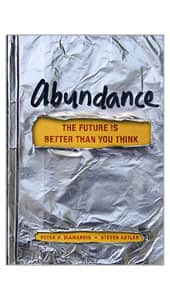Trial will evaluate resveratrol in Alzheimer's dementia Friday, May 18, 2012. Researchers at Georgetown University and 25 other U.S. academic institutions affiliated with the Alzheimer's Disease Cooperative Study will be conducting a phase II double-blinded, placebo-controlled trial that will test the effects of resveratrol in Alzheimer's disease patients. "This is the gold-standard for conducting a clinical study because it allows us to objectively determine if resveratrol is offering any benefits," stated Brigid Reynolds, NP, who is the lead researcher for the study's center at Georgetown. The twelve-month trial, funded by the National Institute on Aging, will enroll men and women age 50 and over with mild to moderate dementia diagnosed as probable Alzheimer's disease and will require one caregiver or friend for each patient. Participants will be initially assigned to 500 milligrams resveratrol or a placebo daily, with dosage to be increased at 13 week intervals to a maximum of 1,000 milligrams twice per day. Lumbar punctures, brain magnetic resonance imaging (MRI) scans, and blood and urine tests will monitor the subjects' progress over the course of ten visits. The researchers hope to determine whether supplementation with resveratrol is helpful in delaying or altering the deterioration of memory and daily function that occurs in Alzheimer's disease. "Most resveratrol studies showing any health benefits have been conducted in animal models, such as mice, and with doses that far exceed intake from sipping wine or nibbling on chocolate," stated R. Scott Turner, MD, PhD, who is the director of Georgetown University Medical Center's Memory Disorders Program and the national study's lead investigator. "With this clinical trial, we'll find out if daily doses of pure resveratrol can delay or alter memory deterioration and daily functioning in people with mild to moderate dementia due to Alzheimer's." "During this study, we will also test whether resveratrol improves glucose and insulin metabolism in older individuals -- although those who already have diabetes will not be included in this study," he added. |
 |
| Harvard Medical School professor of genetics David A. Sinclair and his associates confirm in the May, 2012 issue of the journal Cell Metabolism that the red wine compound resveratrol does indeed impact the longevity gene SIRT1, as well as affect other proteins. "This study provides the first in vivo evidence that beneficial effects of resveratrol on mitochondrial function require SIRT1," the authors announce. Earlier research involving yeast, worms and flies had indicated that resveratrol targeted the sirtuin family of genes of which SIRT-1 is a member, but the findings were not duplicated in animals, due to the fact that those in which the gene for SIRT1 is knocked out don't survive. The concern led one pharmaceutical company to suspend some of its research involving the compound. However, Dr Sinclair's team has now produced mice in which SIRT1 can be completely disabled during adulthood via administration of the drug tamoxifen and have shown that these animals don't experience improved mitochondrial function in response to resveratrol, while mice with normal SIRT1 exhibit increased mitochondrial formation and function. They determined that resveratrol targets SIRT1 at moderate doses and that other molecules, such as AMPK (which is also related to the mitochondria), are targeted at higher doses. "Resveratrol improves the health of mice on a high-fat diet and increases life span," stated Dr Sinclair. "The results were surprisingly clear. Without the mitochondria-boosting gene SIRT1, resveratrol does not work." "It's standard when you study molecules that you use the lowest dose that gives you an effect because of the risk of hitting other things if you use too much," he noted. "But for the downstream benefits on energy, you still need SIRT1. Our paper shows that SIRT1 is front and center for any dose of resveratrol." |
|

|  | Abundance, by Peter H. Diamandis and Steven Kotler
Item #33844 |  | | Since the dawn of humanity, a privileged few have lived in stark contrast to the hardscrabble majority. Conventional wisdom says this gap cannot be closed. But it is closing—fast. In Abundance, space entrepreneur turned innovation pioneer Peter H. Diamandis and award-winning science writer Steven Kotler document how progress in artificial intelligence, robotics, infinite computing, ubiquitous broadband networks, digital manufacturing, nanomaterials, synthetic biology, and many other exponentially growing technologies will enable us to make greater gains in the next two decades than we have in the previous two hundred years. We will soon have the ability to meet and exceed the basic needs of every man, woman, and child on the planet. Abundance for all is within our grasp. | |  | Olive Leaf Vascular Support
Item #01623
|  | | When it comes to olive's power to support blood pressure already within a healthy range, research shows the bioactive compound oleuropein is primarily responsible. The problem is that optimal amounts of oleuropein are not found in the fruit. The highest concentrations of oleuropein are contained in the olive leaf—a part of the plant that is neither readily available nor commonly consumed. Oleuropein normally degrades during standard food processing. For this reason, Life Extension® introduces Olive Leaf Vascular Support. Olive Leaf Vascular Support consists of olive leaf extract standardized to oleuropein using a patented process technology. Researchers using 1,000 mg per day of this formulation in a double-blind, controlled clinical trial documented an average 11.5 point mmHg decline in systolic readings and 4.8 point drop in diastolic readings in eight weeks. | | |












